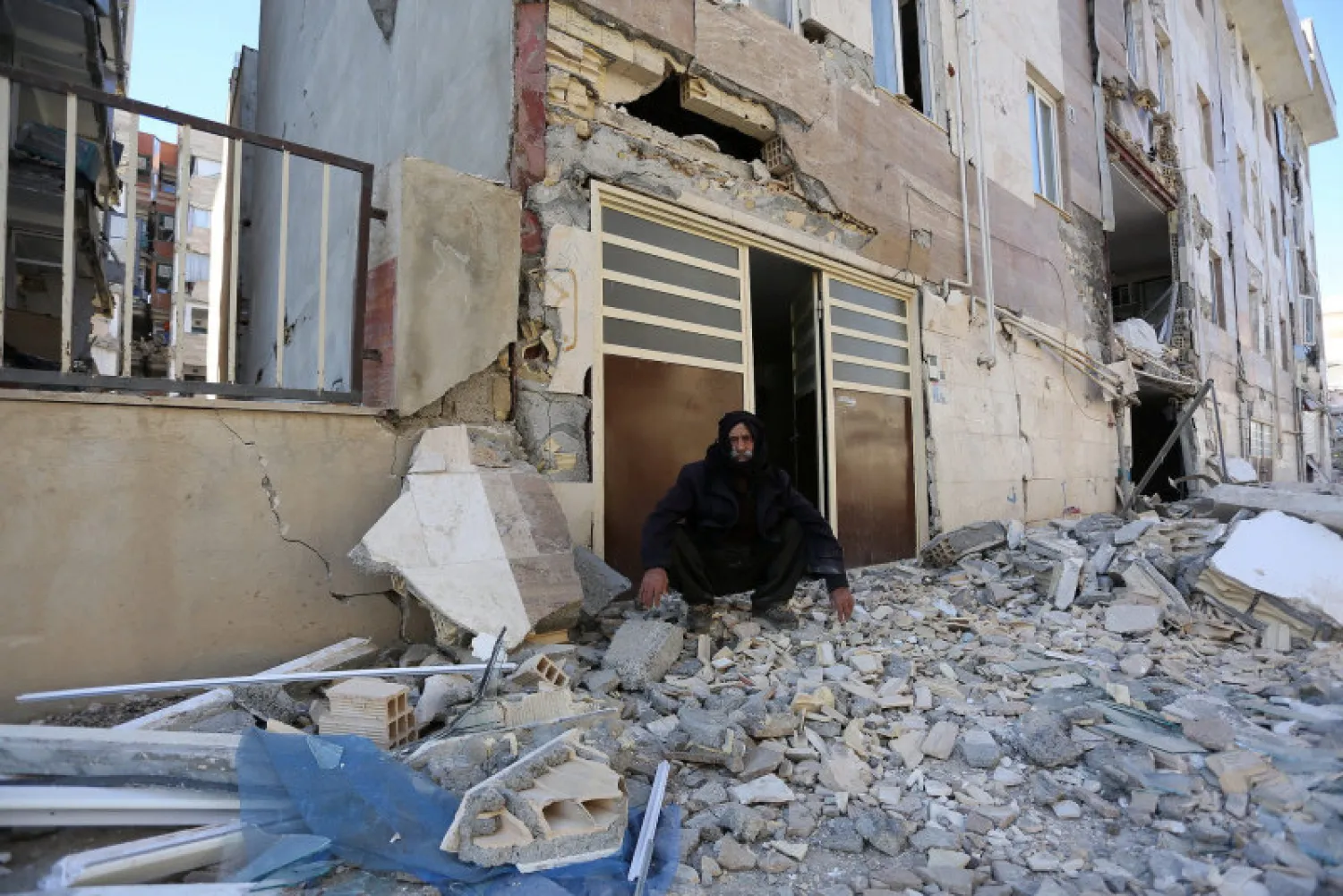Iran’s official media outlets cited high-ranking spokespersons who in their statements have let up hope on survivors being rescued from under quake rubble.
"Iranian officials called off rescue operations earlier in the day on the grounds that there was little chance of finding more survivors from the quake," reported Iranian media.
As the country marked a day of mourning, President Hassan Rouhani promised swift help following the 7.3-magnitude quake that struck late Sunday a mountainous region, extending across Iran's western province of Kermanshah and neighboring Iraqi Kurdistan.
Arriving to the scene, Rouhani vowed that reconstruction efforts will commence and that his administration will spare no effort in providing swift support to victims of this disaster.
Rouhani, promising victims emergency financial assistance, said in Kermanshah: “I want to assure those who are suffering that the government has begun to act with all means at its disposal and is scrambling to resolve this problem as quickly as possible.”
On the other hand, exhausted and exposed to freezing cold, survivors begged authorities for food and shelter, saying aid was slow to reach them.
The quake killed 530 people in Iran and injured 7,460, the state-run IRNA news agency reported Tuesday. Most of the injuries were minor with fewer than 1,000 still hospitalized, Iran's crisis management headquarters spokesman Behnam Saeedi told state TV.
Many survivors, who were displaced by the earthquake that hit their villages and hometowns, struggle with freezing temperatures at night and face bleak days scavenging for food and water.
State television said thousands were fighting the cold in make-shift camps. More so, many are believed to have spent an icy night in the open, fearing more earthquakes after about 193 aftershocks.
Iranian officials say the situation is under control in affected areas, but newspapers and media have been circulating recordings of citizens complaining of being left out in the cold without aid, food and medicine.
According to Reuters, there were also reports of shortages of medical supplies in the impact area.
The death toll from Tehran is the worst earthquake in more than a decade.
On that note, the Iranian Embassy in Moscow issued a statement stressing the need to reassess the national crisis-dealing mechanism after the earthquake, reported Iran’s Tasnim.
The statement criticized what it called a lacking structure in coping mechanisms and ability to provide vital responses in the event of natural disasters.









